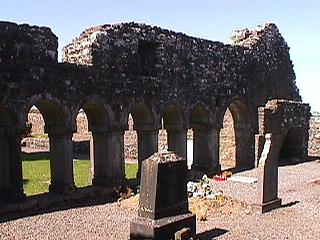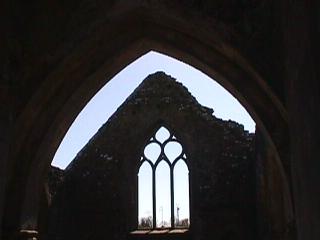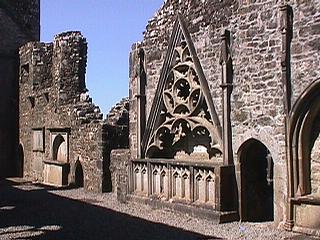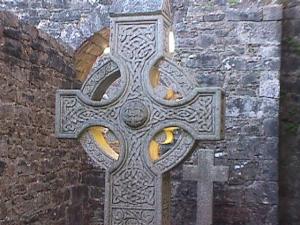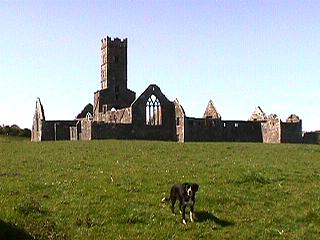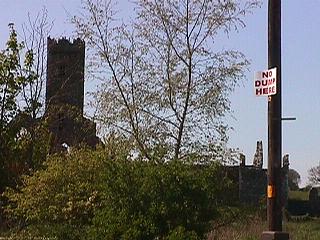| The ruins of this Franciscan Friary are amongst the best
that are to be seen in Ireland. Founded in 1353, the Friary is believed
to have been built on the site of a much earlier 6th century monastic settlement
named "Chill Chonill" in the
Celtic language (which means "Church of Conall"). Like
the monastic settlement founded by St CiarŠn twenty-five miles or so to
the east around 543 AD (at Clonmacnoise), "Chill
Chonill" is also located on the Esker
Riada.
The present Anglicised placename "Kilconnell" appears to be
a straightforward corruption of the Celtic words "Chill
Chonill".
While numerous church properties were closed down following the Protestant
Reformation (which began in the early1500's), Kilconnell Friary
is unusual in that it held out for longer than many others; and, it even managed to
successfully defend itself against an attack by soldiers from Lord Oliver
Cromwell's Army in 1651. However, it eventually fell into ruin
following the defeat of the Catholic Army of King James II
of England at the nearby Battle of Aughrim in 1691
(by the Protestant Army of his son-in-law King William of Orange).
In all probability, the wealthy Catholics who normally provided financial support (and
physical protection) for Kilconnell Friary and its occupants up to that time were either
killed in the very decisive Battle of Aughrim (Ireland's "Gettysburg"),
or, they left Ireland shortly afterwards because they did not wish to live under the new
arrangements. Though some would have survived the battle and stayed on in Ireland, they
would have been dispossessed of their wealth and their influence.
The line "Bare ruined
choirs, where late the sweet birds sang" (from
one of William Shakespeare's poems) is almost certainly a reference to
the demise of church properties such as Kilconnell Friary in the wake of the Reformation -
which Shakespeare himself would have witnessed in England during the second half of
the1500's, and the early years of the 1600's. |


